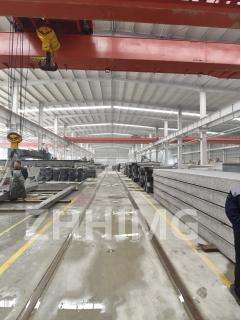Granite is widely used in the manufacture of mechanical parts for measuring instruments due to its durability, strength and resistance to wear and tear. There are different types of granite that are specifically selected for their unique properties and suitability for various applications in precision instrument manufacturing.
In this context, one of the most commonly used types of granite is called "granite" (huā gāng shí), which translates to granite in English. This type of granite is prized for its fine-grained structure, allowing for precise processing and finishing. Its high density and low porosity make it ideal for parts requiring stability and corrosion resistance.
Another type of granite used for making mechanical parts of measuring instruments is black granite. Known for its uniform texture and dark color, this variety has a striking appearance and excellent stability and vibration-damping properties. Black granite is often used in the base and support structure of precision instruments to ensure accurate and reliable measurements.
In addition to these types, there are specialized granite varieties designed to meet the specific requirements of the construction of measuring instruments. For example, some granites have a low thermal expansion coefficient and are suitable for use in environments with fluctuating temperatures. Others may have enhanced damping characteristics to minimize the impact of external vibrations on instrument accuracy.
Choosing the right type of granite for the construction of mechanical parts in measuring instruments is critical to ensuring the performance and longevity of the instrument. Manufacturers carefully consider factors such as the intended application, environmental conditions and accuracy requirements when selecting the type of granite to use.
To sum up, granite, including "granite" and black granite, plays a vital role in the construction of mechanical parts of measuring instruments. Its unique properties make it an ideal material for ensuring the accuracy, stability and reliability of precision instruments in a variety of industrial and scientific applications.
Post time: May-13-2024

